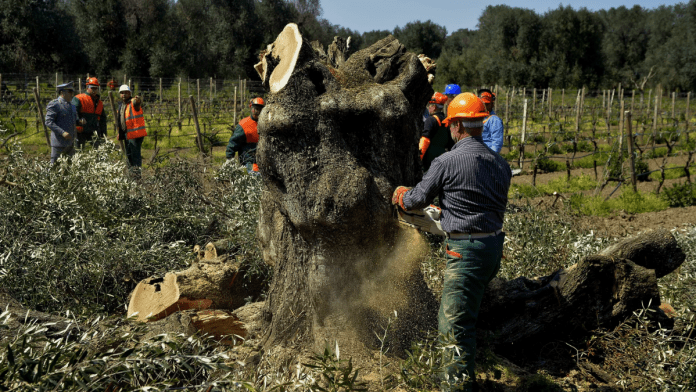News in Brief:
– EU adopts groundbreaking strategy to prevent the introduction and spread of plant pests, aiming to protect local agriculture from devastating impacts.
– Key measures include the establishment of a Union Plant Health Emergency Team and streamlining reporting obligations through digital transmission, signaling a proactive approach to safeguarding agricultural interests.
The European Union (EU) has crafted a strategic plan to fortify its defenses against invasive plant pests, aiming to safeguard local agriculture from the devastating impacts experienced in recent years.
This accord, finalised by Members of the European Parliament (MEPs) and the EU Council, is set to reshape the region’s approach to curbing the introduction and spread of harmful pests.
Its proactive stance comes after grappling with challenges like the Xylella fastidiosa, a notorious olive tree-killer that invaded Europe from a coffee plant in the 2000s. With estimates suggesting the cost of tackling the Xylella infection to exceed â¬20 billion over the next 50 years, the need for robust preventive measures is evident.
Plant health emergency team
During a discussion held on 5 March 2024, EU lawmakers unveiled a pivotal addition to the proposal â the Union Plant Health Emergency Team. This emergency task force, not initially part of the commission’s plan, aims to assist member states in controlling and eradicating pests that surpass their capabilities.
Clara Aguilera, the European Parliament negotiator, emphasised the team’s role in responding to unforeseen pest challenges, drawing inspiration from a successful model used for animal health.
Notably, the emergency team is not limited to EU borders; it can extend support to third-party countries seeking assistance in preventing outbreaks that could threaten EU territories. The move aligns with the EU’s commitment to global cooperation in combating agricultural threats.
Streamlining processes for farmers
Apart from the emergency response team, the new rules champion digital transmission of notifications, a step towards reducing bureaucratic hurdles for farmers. Belgian Agriculture Minister David Clarinval highlighted that this shift would alleviate administrative burdens on both operators and national authorities.
While the political deal awaits formal approval from the parliament’s plenary and EU agriculture ministers in the coming weeks, its potential impact on local farmers is already in the spotlight. As the EU pioneers this aggressive strategy, the focus remains on building a resilient shield against plant pests, ensuring a sustainable future for European agriculture.



